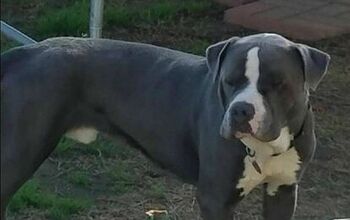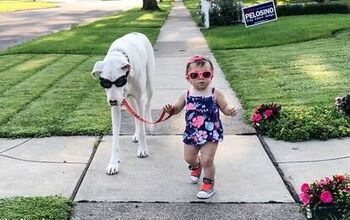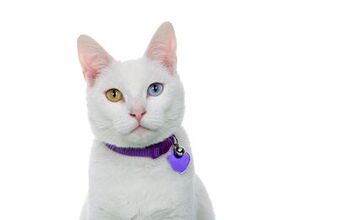Dandruff is often associated with human scalp issues, but we aren’t the only ones who may struggle with this annoying condition. While it may not be as noticeable as it is in humans, our feline friends can also experience these white flakes.This condition is not only a nuisance, but it can also be a sign of underlying skin problems.In this blog post, I’ll explore the possible causes, symptoms, and treatment options for dandruff in cats. Learn what you can do to help keep your cat’s coat healthy and itch-free.What is Dandruff You’re likely familiar with the white flakes and itchiness of dandruff in people, but what exactly is dandruff anyway? This common condition, in both cats and humans, occurs when something irritates the skin, causing it to flake. The presence of flaking isn’t a serious health condition on its own; however, it could indicate a more severe underlying condition. Understanding the potential causes and what other warning signs to watch out for will help you prioritize your cat’s health and well-being. Symptoms of Cat Dandruff The most obvious symptom of dandruff in your cat is obviously the presence of white or grey flakes on their bedding or throughout the coat. However, there are other symptoms that may alert you that your cat is currently dealing with a problem. Some of the more common signs include: ItchingExcessive groomingDry, inflamed, or irritated skinGreasy coat Hair loss Of course, these are very general symptoms that could point to a wide range of health problems and complications. The key to getting the relief your cat needs is to identify and address the root cause. A quick-fix solution like a bath may work short-term, but the dandruff will return if the underlying problem isn’t taken care of. Causes of Dandruff in Cats Skin flaking can be traced back to a wide range of medical problems, environmental conditions, allergies, and other situations. This can make it challenging to pinpoint what your cat is currently experiencing and treat it accordingly. There are the most common causes and what to look out for to help you start to narrow down the problem: Difficulty Self-Grooming Cats are known for being incredibly clean and well-groomed animals. They are masters of self-grooming, often caring for themselves so well that they require little or no outside help to maintain their grooming needs. However, sometimes in a cat’s life, keeping up with self-grooming can become difficult or nearly impossible. If your cat is obese, experiencing senior aches and pains, or has recently suffered an injury or ailment that impacts their ability to bend, contort, or reach areas of their body, their grooming may suffer. When their grooming isn’t kept up, the skin becomes irritated, which can result in skin flaking. Skin Allergies or Irritation Another possible cause of skin-related problems is the presence of skin allergies, infections, or other irritations. This is a broad category, but it is also the most common of the possible reasons on this list. Your cat’s skin irritation could be caused by nearly anything, but some potential causes include being in a dry environment, environmental allergies, food allergies, or sores/rashes. Signs your cat may be suffering from skin irritation include: Licking, scratching, or biting the skin Fur loss OvergroomingDull or brittle coat appearance SwellingScabs or bumps While skin irritation may not seem serious, it can be incredibly painful and uncomfortable. Even if the irritation isn’t causing flaking or dandruff, it’s best to address it and give your cat some much-needed relief. Trapped Undercoat Just like dogs, cats shed. However, for some reason, this part of cat ownership isn’t talked about nearly as frequently. As your cat sheds, the dead fur either falls out, collecting on the floor, bedding, and other surfaces in your home or becomes trapped in the coat. Regular brushing removes this dead fur. However, if you aren’t brushing to remove it, the fur can build up and cause skin irritation and other issues. Nutritional IssuesThe food your cat eats directly impacts their health and well-being, including their skin and coat condition. If your cat’s current diet isn’t providing the nutritional balance they require, you may notice changes in the quality of their fur. For example, a diet that doesn’t provide enough protein to support fur growth can cause hair loss or give their coat a dry, brittle appearance. Meanwhile, a diet that fails to provide essential fatty acids can lead to dull, dry fur and greasy skin. As your cat’s diet can impact so much more than their coat, this could be an early warning sign that you must make changes. Take a moment to reassess the food and treats your cat is given on a daily basis. Is it a nutritionally balanced diet? If something is missing, are there supplements you can add to their diet to account for this? If you’re unsure about whether your current food selection is the best option, consult your veterinarian or a pet nutritionist. Finally, water consumption is an often-overlooked element of your cat’s nutrition and diet. Cats are prone to suffering from dehydration, which can cause dry skin and skin flaking. Ensure your cat consumes enough water daily, either through drinking water or offering high moisture content in their food. External Parasites Of course, we can’t address potential skin problems without discussing the unwanted parasites your cat may encounter. Fleas, ticks, mites, and other external parasites often live on or in your cat’s skin, referred to as an infestation. Depending on the parasite, they may bite your cat to feed (like fleas and ticks) or burrow into the skin (mites/mange), causing itching, irritation, and discomfort. They may also introduce infections or illnesses. The best course of action to avoid dealing with these parasites is to ensure your cat is on a preventative. However, if they are already experiencing an infestation, you may need to take steps to eliminate the current pests. Over-the-counter products like shampoos are available, but I recommend contacting your vet to assess the severity of the problem and ensure that you’re taking the right steps to clear it up as quickly as possible. Medical Conditions Several medical conditions could cause changes to your cat’s skin and coat condition. Examples include hyperthyroidism, heart disease, kidney disease, pancreatitis, diabetes, and some forms of cancer. Of course, if your cat suffers from one of these medical conditions, you need to identify the problem and start treatment as quickly as possible. In addition to dandruff, other warning signs to watch out for include: Weight loss Loss of appetite Vomiting or diarrhea Abdominal painBad breath Fever Excessive thirstWeakness or lack of energy Coughing or difficulty breathingThe only way to rule out medical conditions like those listed above is to make an appointment with your veterinarian. Come to the appointment with a complete list of the symptoms you have observed and why you are concerned. This will help paint a better picture for your vet of what is happening, helping them reach a diagnosis. Your vet will either rule out these problems or identify the medical issue and recommend the best treatment options.

























